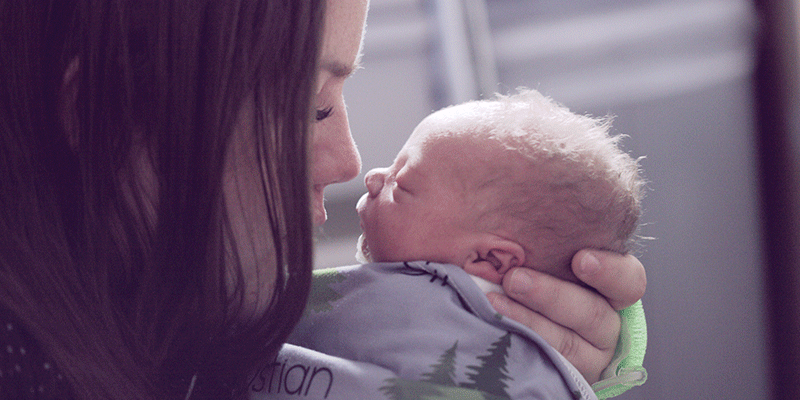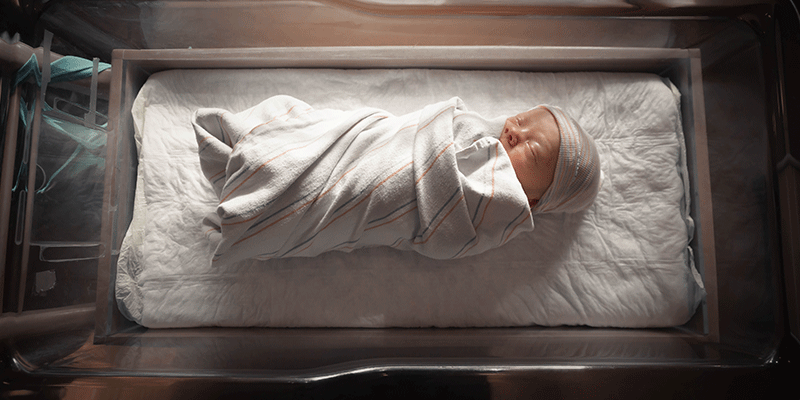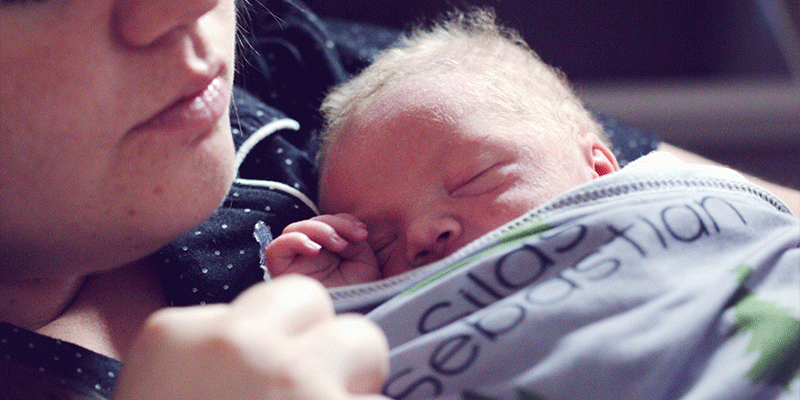
Excessive Crying
All newborns cry, often for no apparent reason. If you’ve made sure that your baby is fed, burped, warm, and dressed in a clean diaper, the best tactic is probably to hold him and talk or sing to him until he stops. You cannot “spoil” a baby this age by giving him too much attention. If this doesn’t work, wrap him snugly in a blanket.
You’ll become accustomed to your baby’s normal pattern of crying. If it ever sounds peculiar—for example, like shrieks of pain—or if it persists for an unusual length of time, it could mean a medical problem. Call the pediatrician and ask for advice.
Forceps Marks
When forceps are used to help during a delivery, they can leave red marks or even superficial scrapes on a newborn’s face and head where the metal pressed against the skin. These generally disappear within a few days. Sometimes a firm, flat lump develops in one of these areas because of minor damage to the tissue under the skin, but this, too, usually will go away within two months.
delivery
Those who have a parent or sibling who had high bilirubin levels and underwent treatment for it
When the doctor determines that jaundice is present and needs to be treated, the bilirubin level can be reduced by placing the infant under special lights when he is undressed—either in the hospital or at home. His eyes will be covered to protect them during the light therapy. This kind of treatment can prevent the harmful effects of jaundice. In infants who are breastfed, jaundice may last for more than two to three weeks; in those who are formula-fed, most cases of jaundice go away by two weeks of age.
Respiratory Distress
It may take your baby a few hours after birth to form a normal pattern of breathing, but then he should have no further difficulties. If he seems to be breathing in an unusual manner, it is most often from blockage of the nasal passages. The use of saline nasal drops, followed by the use of a bulb syringe, are what may be needed to fix the problem; both are available over the counter at all pharmacies.
However, if your newborn shows any of the following warning signs, notify your pediatrician immediately:
- Fast breathing (more than sixty breaths in one minute), although keep in mind that babies normally breathe more rapidly than adults.
- Retractions (sucking in the muscles between the ribs with each breath, so that her ribs stick out)
Flaring of her nose
- Grunting while breathing
- Persistent blue skin coloring
Last Updated 8/1/2009
Source Caring for Your Baby and Young Child: Birth to Age 5 (Copyright © 2009 American Academy of Pediatrics)
The information contained on this Web site should not be used as a substitute for the medical care and advice of your pediatrician. There may be variations in treatment that your pediatrician may recommend based on individual facts and circumstances.






